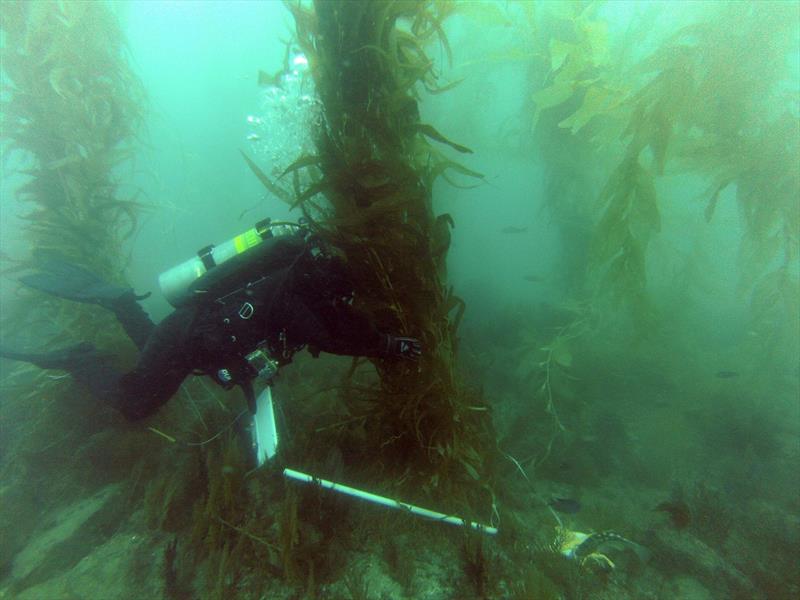
Scientists shine light on 'bright spots' to restore coastal ecosystems
by CSIRO 25 Dec 2020 05:56 UTC

Coastal ecosystems across the globe including saltmarshes, mangroves, seagrasses, oyster reefs, kelp beds and coral reefs have declined by up to 85 per cent over decades © CSIRO
CSIRO, Australia's national science agency, has identified coastal 'bright spots' to repair marine ecosystems globally, paving the way to boost biodiversity, local economies and human wellbeing.
Doctor Megan Saunders, CSIRO Oceans and Atmosphere Senior Research Scientist, said successful coastal restoration efforts could be achieved over large areas, deliver positive impacts for decades, expand restored areas by up to 10-times in size, and generate jobs.
"Coastal ecosystems across the globe including saltmarshes, mangroves, seagrasses, oyster reefs, kelp beds and coral reefs have declined by up to 85 per cent over decades," Dr Saunders said.
"Identifying bright spots that have delivered successful coastal and marine restoration in the past enables us to apply this knowledge to help save marine areas that are struggling to recover from degradation.
"Re-establishing coastal marine ecosystems at large scales can support human health and wellbeing and boost the adaptation response to climate change."
The research published today in the journal Current Biology outlined successful restoration examples from across the world that could be learned from and implemented into similar marine environments.
"A range of techniques have resulted in significant restoration of saltmarshes, coral reefs and seagrass meadows over extended periods of time," Dr Saunders said.
"In Australia, there are some really innovative examples of marine restoration.
"For example, CSIRO is harvesting coral larvae in the Great Barrier Reef to boost large-scale coral restoration efforts.
"Simple changes to how we plant saltmarshes have also resulted in doubled survivorship and biomass."
At least 775 million people have a high dependency on coastal marine ecosystems.
Coastal ecosystems help to remove carbon dioxide from the atmosphere and protect and stabilise shorelines.
Coastal marine restoration is an important nature-based answer to the impacts of global climate change.
"Restoration of coastal marine ecosystems back to a healthy state is an important tool for responding to threats to the marine environment such as coastal development, land use change and overfishing," Dr Saunders said.
The United Nations recognised the importance of the restoration and declared the Decade on Ecosystem Restoration to start from 2021.
The UN panel for a Sustainable Ocean Economy also emphasised the need to undertake restoration and other nature-based approaches at large scales to restore and protect coastal ecosystems.
Professor Brian Silliman, co-author and CSIRO Distinguished Fulbright Chair in Science and Technology and Professor at Duke University, USA, said 'bright spots' gave us the window to understand which restoration methods worked best so we could identify where to focus research efforts and investment to protect people's livelihoods.
"Investing into coastal restoration creates jobs and can be used as a strategy to boost economic recovery and coastal marine health," Professor Silliman said.
"Restoration of marine habitats, such as kelp forests and oyster reefs, has improved commercial and recreational fishing in some countries, which boosted the local economy.
"In the USA, the propagation and dispersal of seagrass seeds resulted in seagrass meadows recovering in areas where they had been lost many decades ago, removing an estimated 170 tonnes of nitrogen and 630 tonnes carbon per year from the atmosphere.
"In another study, recovery of reefs impacted by blast fishing in Indonesia has been achieved by placing rocks or other hard structures underwater to help with coral colonisation, with persistent growth of coral recorded for more than 14 years."
Doctor Chris Gillies, The Nature Conservancy's Oceans Program Director and a co-author on the study, said demonstrating that projects could be successful was important for securing investment into restoration.
"We are starting to see more and more investment into marine restoration in Australia," Dr Gillies said.
"For example, the Australian Government recently invested $20 million into 'Reef Builder' to restore 20 of Australia's lost shellfish reefs."
The study was a collaboration between CSIRO, Duke University, The Nature Conservancy, The University of Queensland, University of New South Wales and the Sydney Institute for Marine Science.